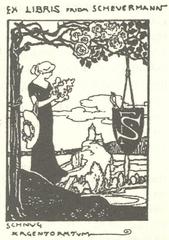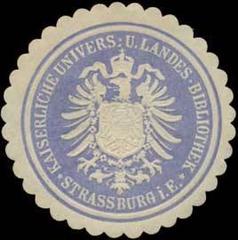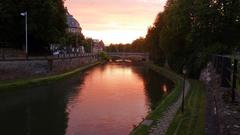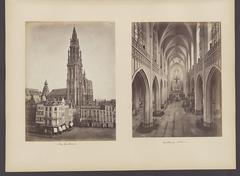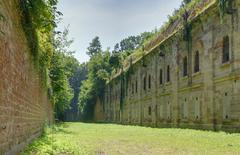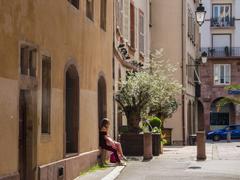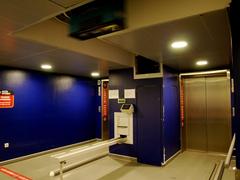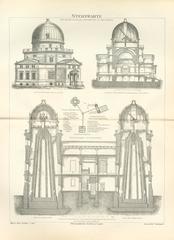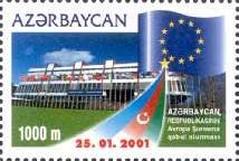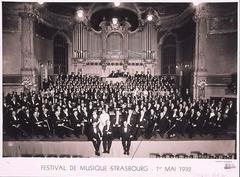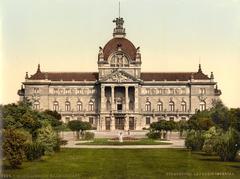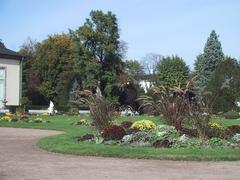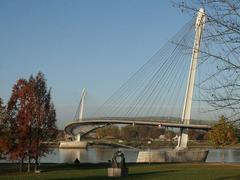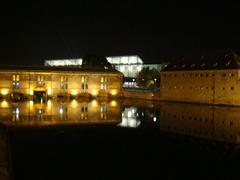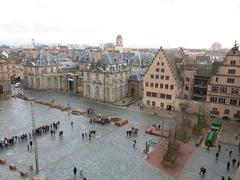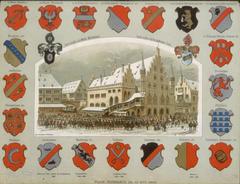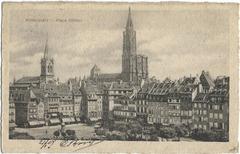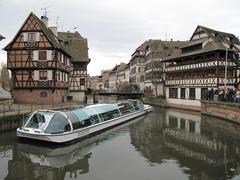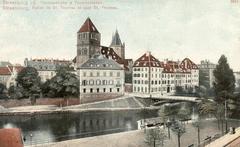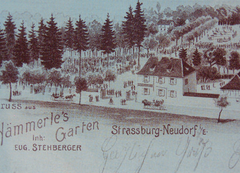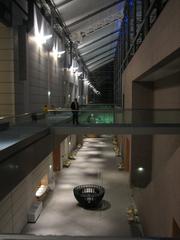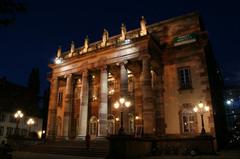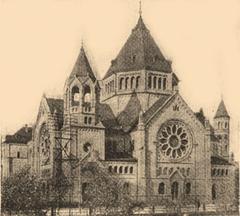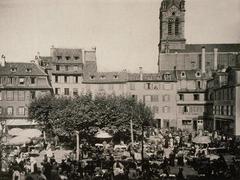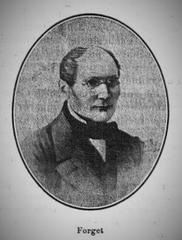Strasbourg Archives Visiting Hours, Tickets, and Historical Site Guide
Date: 04/07/2025
Introduction
Strasbourg, a city at the crossroads of French and German cultures, offers a wealth of historical and cultural experiences—none more illuminating than a visit to its archives. The Strasbourg Archives serve as both a vital repository of centuries-old documents and a dynamic institution supporting research, education, and public engagement. This guide provides detailed information on visiting hours, ticketing, research opportunities, accessibility, and additional tips for making the most of your visit. Whether you’re a dedicated historian, a student of European culture, or a curious traveler, the Strasbourg Archives open a window into the city’s multifaceted past and enduring legacy.
For the latest updates and in-depth resources, be sure to consult the Archives Départementales du Bas-Rhin and the Strasbourg Municipal Archives.
Table of Contents
- Introduction
- Historical Evolution of Strasbourg
- The Strasbourg Archives: Visiting Hours, Tickets, and Research Opportunities
- Exploring Strasbourg’s Historical Sites Near the Archives
- Frequently Asked Questions (FAQ)
- Practical Visitor Information
- Conclusion and Visitor Tips
- References and Further Reading
Historical Evolution of Strasbourg
Prehistoric and Roman Foundations
Strasbourg’s roots stretch deep into prehistory, with settlements established as early as the Neolithic era. By the third century BCE, the area was home to a Celtic township, Argentorate, strategically positioned on the Rhine (Wikipedia). The Romans fortified the site in 12 BCE, founding Argentoratum as a military post. Roman engineering transformed the marshes into a permanent, prosperous settlement, laying the groundwork for the city’s future as a key regional hub (France This Way; World City History).
Medieval Autonomy and Prosperity
After the fall of Roman authority, Strasbourg experienced a series of conquests before emerging as Strateburgum under Frankish rule (Britannica). The city’s medieval history was marked by a struggle for autonomy, culminating in 1262 when citizens won self-governance and status as a Free Imperial City within the Holy Roman Empire (France This Way). This newfound independence ushered in a golden age of trade, education, and humanist thought, highlighted by the completion of Strasbourg Cathedral in 1439 and Gutenberg’s development of the movable-type printing press around 1440 (World City History).
Reformation, Religious Change, and Franco-German Rivalry
Strasbourg became a Protestant stronghold in 1529, attracting reformers and maintaining neutrality during the Thirty Years’ War (Britannica). The city was annexed by France under Louis XIV in 1681, a transition confirmed in 1697, yet it maintained special privileges until the French Revolution. The anthem “La Marseillaise” was composed here in 1792, underscoring Strasbourg’s role in French national identity. Over the next two centuries, control of the city shifted between France and Germany, reflecting the broader geopolitical struggles of the region (World City History).
Strasbourg as a Symbol of European Unity
In the aftermath of World War II, Strasbourg emerged as a symbol of reconciliation and European integration. Today, it hosts the Council of Europe, the European Parliament, and the European Court of Human Rights, underscoring its enduring importance as a bridge between cultures and a center for international cooperation (World City History).
The Strasbourg Archives: Visiting Hours, Tickets, and Research Opportunities
Major Archives and Their Locations
Strasbourg’s archival landscape is rich and varied:
- Archives Départementales du Bas-Rhin: 6 Rue Philippe Dollinger, 67100 Strasbourg. This site preserves departmental records, including essential documentation on Alsace’s return to France in 1918.
- Strasbourg Municipal Archives: Located along the canal, these archives house municipal records, personal papers, and extensive photographic collections.
- University Library (Bibliothèque nationale et universitaire de Strasbourg): Place de la République, home to microfilm copies of Alsatian press, manuscripts, and historical literature.
- Regional Archives: Complementary collections in Colmar and Mulhouse document earlier centuries and regional developments.
Visiting Hours and Ticket Information
- Archives Départementales du Bas-Rhin: Open Monday–Friday, 8:30 am–5:00 pm. Note a document ordering pause from 11:45 am–2:00 pm (French History Society).
- Municipal and University Archives: Similar hours; consult their websites for specifics.
- Admission: Visiting is generally free. Registration with valid ID is required. Some special exhibitions or guided tours may have a nominal fee.
Access and Facilities
- Public Transport: Bus 21 stops at ‘Aristide Briand’ outside the departmental archives; Tram lines C and E stop at ‘Winston Churchill’ nearby.
- Cycling: Strasbourg’s Vélhop bike rental is an eco-friendly option.
- Facilities: Modern reading rooms, Wi-Fi, computer terminals, and accessible amenities for visitors with disabilities.
Research Opportunities and Collections
The archives hold millions of documents—medieval charters, civil registers, census data, maps, photographs, personal papers, and newspapers—providing unparalleled access to Strasbourg’s history.
Special Events and Guided Tours
Regular temporary exhibitions focus on themes such as World War II, the history of printing, and local culture. Guided tours, generally by appointment, offer insights into the collections and the city’s past.
Exploring Strasbourg’s Historical Sites Near the Archives
Enhance your archival visit by exploring nearby landmarks:
- Grande Île: A UNESCO World Heritage Site, home to Strasbourg Cathedral and Palais Rohan.
- Esplanade and Neudorf: Neighborhoods near the archives, offering local culture and distinctive architecture.
- Gutenberg Museum: Celebrating Strasbourg’s role in the history of printing.
Frequently Asked Questions (FAQ)
Q: What are the opening hours of the Strasbourg Archives?
A: Monday–Friday, 8:30 am–5:00 pm (document ordering paused midday); always check the archive’s official website for updates.
Q: Is there an entrance fee?
A: Admission is free; some special events or tours may require tickets.
Q: Are guided tours available?
A: Yes, by appointment. Contact the archives in advance to arrange a tour.
Q: Can I access digital materials?
A: Many collections are digitized and accessible online.
Q: How do I reach the archives using public transport?
A: Bus 21 and tram lines C and E offer convenient access; Strasbourg is also bike-friendly.
Practical Visitor Information
Location and Transportation
- Address: 32 avenue du Rhin, 67076 Strasbourg Cedex
- Transport: Tram lines C and E (‘Winston Churchill’ stop) and multiple bus routes provide easy access (Destination Abroad).
- Parking: Limited and discouraged due to the central location; cycling or public transport is recommended.
Accessibility and Facilities
- Accessibility: Fully wheelchair accessible with ramps and elevators.
- Amenities: Restrooms, lockers, reading rooms, and Wi-Fi are available. No café onsite, but many nearby eateries.
Registration and Research
- Registration: Required with valid photo ID at reception.
- Research: Pre-register and use the online catalog to identify materials. Some documents require advance notice.
Language and Staff Support
French is the primary language, but German and English are also spoken by staff and featured in signage (Study Country). Translation apps are useful for non-French speakers.
Photography Policy
Non-flash photography is usually permitted for personal research purposes; commercial or publication use requires prior approval.
Special Exhibitions and Events
Check the Visit Strasbourg calendar for information on temporary exhibitions and public events.
Family and Group Visits
Families and small groups are welcome. School visits and larger groups should book in advance for educational programs and guided tours.
Visitor Tips
- Plan Ahead: Confirm opening hours and book guided tours or research appointments in advance, especially during holidays or festivals.
- Pack Light: Lockers are available for large bags.
- Combine Visits: Pair your archive visit with nearby attractions like the Petite France district or the European Quarter.
- Sustainability: Use public transport or cycling to minimize environmental impact (Sustainability efforts).
- Stay Connected: Free Wi-Fi is available; portable chargers are useful for long research sessions.
Conclusion and Visitor Tips
A visit to the Strasbourg Archives offers a rare opportunity to engage with centuries of history in a city that has shaped and been shaped by European events. With free admission, excellent research facilities, and proximity to the city’s major historical sites, the archives are an essential stop for anyone interested in Strasbourg’s story. For current information, digital resources, and to plan your visit, consult the Strasbourg Archives website, and consider downloading the Audiala app for audio guides and event updates.
References and Further Reading
- Archives Départementales du Bas-Rhin
- Strasbourg Municipal Archives
- University Library of Strasbourg
- Vélhop Bike Rentals
- French History Society
- World City History – Strasbourg
- libestrasbourg.fr
- Visit Strasbourg
- Destination Abroad
- Amazon: Strasbourg Travel Guide 2025-2026
- Study Country
Images:
- Exterior of the Archives Départementales du Bas-Rhin in Strasbourg (alt: “Strasbourg Archives building”)
- Strasbourg Cathedral (alt: “Strasbourg Cathedral, a Gothic landmark”)
- Map of archive locations and nearby historical sites
Internal links:
- Explore our article on [Strasbourg’s UNESCO World Heritage Sites]
- Read about [The Life and Legacy of Johannes Gutenberg in Strasbourg]
